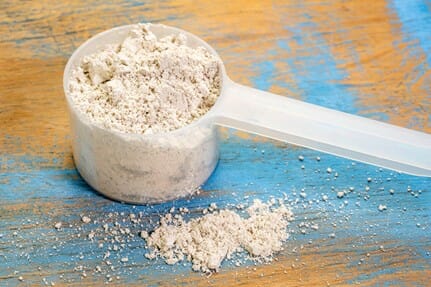You know the feeling: you’re enjoying a nice, relaxing afternoon in your home when you see it – a pest, crawling on or around something you love.
Not only are bugs and insects unpleasant to look at, but they can introduce germs and disease, cause damage to your home, and wreak havoc on your garden and landscaping.
You know you want to get rid of these pesky creatures, but you don’t want to use harsh chemicals that could put your health at risk.
What are your other options?
We recommend considering natural insecticides. Designed to remove bugs – without contaminating your home with dangerous compounds – natural insecticides have gained popularity in recent years. Today, we recommend them to our clients as a safe, healthy, eco-friendly way to get rid of unwelcome pests.
Here at Smith’s Pest Management, we’ve helped thousands of customers throughout the San Francisco Bay Area get rid of pests naturally, so we know a thing or two about which options work best.
In this post, we’ll share the best natural insecticides and tips on how to use them in your home.
Key Takeaways
- Natural insecticides are a safe, effective alternative to traditional pest control methods – especially for households with kids or domestic pets.
- Natural insecticides are substances derived from organic sources or produced by natural organisms for their own defense.
- It’s easy to make your own natural insecticides from everyday household items like chile peppers, tomato leaf, vegetable oil, or neem oil, among others.
- If making natural insecticides isn’t your thing, Smith’s offers a variety of green pest control options that are safe for kids, pets, non-target species, and the environment.
What are Natural Insecticides?
Put simply, an insecticide is a substance designed to kill a target species of insect. Different insecticides target different species.
For example, if you were shopping for commercial insecticides, you’d find options for spiders, roaches, and everything in between. Most traditional insecticides are made from manufactured chemicals that make them very effective, but also very toxic.
Natural insecticides, on the other hand, are substances produced by natural organisms for their own defense or derived from an organic source, such as a mineral or plant. Like traditional insecticides, the goal of a natural insecticide is to kill, repel, or put an end to the damaging behavior of insects.
While natural insecticides are generally safer and less toxic than man-made insecticides, there are exceptions.
For example, nicotine is the natural insecticide produced by the tobacco leaves, but it is also a highly addictive, dangerous component of cigarette smoke that is more toxic than most synthetic insecticides. Additionally, arsenic, strychnine, lead, mercury, and other compounds historically used as insecticides are technically “natural,” even though none of these compounds are safe.
The bottom line is this:
Regardless of whether you choose to use natural or man-made insecticides to get rid of your pest problem, it’s essential to educate yourself about the topics and understand how to use each substance safely.
Organic vs Synthetic Insecticides: Advantages & Disadvantages
So, you’re interested in using organic insecticides. You know they may be safer, but are they as effective and easy to deploy? Are natural or synthetic insecticides better?
Here’s a breakdown of each option, and their pros and cons.
Synthetic Insecticides: Pros & Cons
First, let’s take a look at synthetic insecticides. Composed of harsh, man-made chemicals, synthetic insecticides are highly-targeted compounds.
Typically, synthetic insecticides are formulations – a mixture of adjuvants (which are usually kept top-secret by the companies that make them), plus an active ingredient, which is typically tested alone.
Therein lies the problem:
According to recent research, the majority of insecticide formulations are thousands of times more toxic than their declared active ingredients.
With that in mind, here are the pros and cons of synthetic insecticides:
Pros
- Effective
- Fast-acting
- Widely available
- Easy to apply
- Long-lasting
Cons
- May be dangerous for kids and pets
- Generally toxic
- May kill non-target species that come into contact with the insecticide
- May affect water run-off, soil, and other natural environments
What are the most toxic insecticides?
While it was once a common pesticide in California, chlorpyrifos is one of the most toxic in the world. Originally developed as a nerve gas weapon during World War II and later adapted as a commercial pesticide, chlorpyrifos is a broad-spectrum pesticide/insecticide.
As you may imagine, though, it’s not at all safe for humans. The compound has been linked to neurological damage, persistent developmental disorders, and autoimmune disorders.
Because of those dangers, chlorpyrifos use was eliminated in California in early 2020.
Natural Insecticides: Pros and Cons
Now that we’ve discussed human-made insecticides and the considerable danger they pose to people let’s take a look at natural insecticides, and how they stack up.
Pros
- Most organic insecticides are considered safer and more environmentally-friendly than man-made chemicals
- Organic insecticides are often as effective at pest control as man-made compounds
- Will not pollute water or soil
- Easy to use and apply
Cons
- Most natural insecticides don’t last quite as long as man-made insecticides, which means you’ll have to apply them frequently
- They are more expensive than traditional methods
- They may not be 100% effective for serious pest problems
- Despite their moderate cons, natural insecticides should be the obvious choice for any green- or eco-minded homeowner
6 Natural Insecticide Solutions to Try at Home
Now that you know about the differences between natural and human-made insecticides let’s talk about a few of the best organic insecticide options you can use in your home.
1. Chile Pepper Insecticide Spray
The oils secreted by chile peppers make excellent alternatives to synthetic insecticides. To make chile pepper spray, mix one tablespoon of chile powder (or capsaicin, if you’re looking for a stronger deterrent) with a quart of water and a few drops of mild liquid dish soap (it does not have to be insecticidal soap). Shake the mixture well and pour it into a spray bottle.
Apply the spray directly to the leaves of affected plants, being careful to avoid contact with skin since chile pepper oils are irritating for humans.
Most effective for: pests that like to eat garden plants, such as slugs, aphids, nematodes, and beetles.
2. Tomato Leaf Insecticide
You may be trying to protect your tomato plants from predation, but did you know that the leaves of those same plants can help kill pests in your garden? Tomato plants are a member of the nightshade family, which means they contain alkaloids that can kill pests.
To make your own organic insecticide spray, chop up two cups of fresh tomato leaves, place them into a quart of water, and allow the mixture to steep overnight. Strain, pour into a spray bottle and spray directly onto plant foliage.
Most effective for: aphids
3. Oil Spray Insecticide
For an easy homemade insecticide, grab some vegetable oil and your favorite mild soap. Mix one cup of the vegetable oil with a tablespoon of the soap and shake thoroughly.
When you’re ready to use the mixture, take two teaspoons of the oil mixture and combine it with one quart of water, mix thoroughly, and apply directly to the surfaces of plants.
Most effective for: aphids, mites, and thrips
4. Neem Oil Insecticide
Neem oil is a powerful natural insecticide used all over the world. It works by disrupting the lifecycle of pests and is an excellent resource for anyone looking to protect their plants.
To use neem oil in your garden, mix two teaspoons of neem oil with one teaspoon of mild liquid soap, and shake that mixture together with a quart of water. Spray the mixture directly on affected plant foliage.
Most effective for: Soft-bodied insects like aphids, mealybugs, mites, and whiteflies
5. Diatomaceous Earth Insecticide
Diatomaceous Earth (DE, for short) is made from fossilized algae and is an excellent option for anyone looking for safe, natural insecticides.
The material works by smothering insects and drawing moisture from their exoskeletons. To use it, sprinkle the DE on the ground around affected plants. Reapply after every rain or sprinkler cycle.
Most effective for: snails, slugs, and other crawling insects
6. Garlic Insecticide Spray
Garlic has a pungent aroma that repels pests. To make your own homemade insecticide for the house, take two bulbs of garlic and puree them in a blender with a bit of water.
Allow the mixture to sit overnight and then strain it into a jar, adding a half cup of vegetable oil and a few drops of mild liquid soap. When ready to use, spray the mixture on affected plants to keep bugs away.
Most effective for: aphids, beetles, and spiders
Smith’s Green Pest Control Services
Want green pest control services without the DIY component? No problem – Smith’s is here to deliver.
Our team understands that, while getting rid of insects is important to you, you don’t want to harm your pets, kids, or the ecosystem around your home. Fortunately, we offer a variety of green pest control options for your convenience.
When you hire our team for pest control, we’ll follow our proven process:
Step One: Inspection
Before we can decide which natural insecticide option is right for you, we conduct a thorough inspection of your property. This inspection will help us understand the nature of your pest problem, which plants are attracting the pests, and what the best course of action is for getting rid of them.
Step Two: Exclusion
Next, we look for exclusion opportunities. While we can’t prevent all pests from entering your property, we can identify high-traffic areas and deploy exclusion tactics to keep the majority of pests out. Using traps and bait, our team takes every possible avenue to reduce the use of insecticides and keep your family, pets, and property safe.
Step Three: Monitoring
Most pest infestations are complex and multifaceted. To make sure we’re approaching your issue most effectively, we monitor the situation. This tactic allows us to identify the signs of trouble and deploy effective solutions immediately.
How we use Insecticides
When insecticides are necessary to resolve your pest control problems, we’re very selective. Our team uses green- and eco-friendly insecticides whenever possible, and applies only the amount needed to get the job done.
To get rid of pests around your property, we use high-quality, industry-leading, eco-friendly products made by Rockwell Laboratories or Naturecide.
While natural insecticides are better for the environment and your home, they do wear off a bit faster than synthetic insecticides.
This may mean it takes a few more treatments to resolve your pest issue, but it also means that everyone within your home will stay safe and healthy throughout the treatment.
To learn more about how we deploy natural insecticides, contact our team today.
Looking for Organic Pest Control in the San Francisco Bay Area? Turn to Smith’s!
Smith’s Pest Management helps residential and commercial property owners throughout Northern California -from Marin to Monterey – reduce, control, or eliminate their pest problems with an assortment of eco-friendly, safe, and effective natural insecticide methods.
Learn more about our services or book your pest control appointment by requesting your free consultation today.






